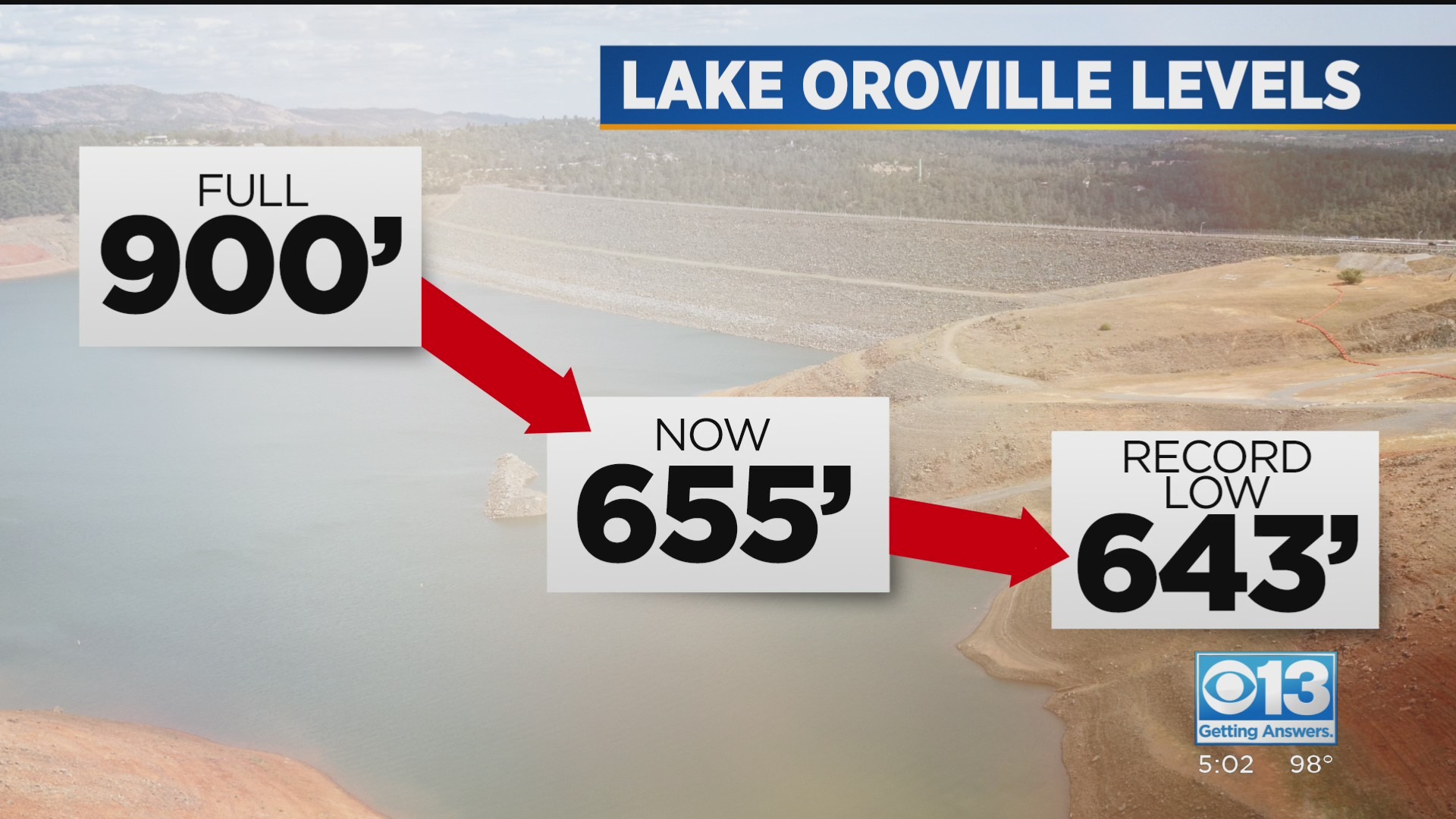California's Drought Drying Up Lake Oroville, Shutting Down Power Plant At Wildfire Season Peak
SACRAMENTO (CBS13) - California's drought is drying up the second-largest reservoir in the state: Lake Oroville.
When it's full, the lake sits around 900 feet. But water levels have been dropping fast in recent weeks. Now it's down to 655 feet. The record low was reached back in 1977 and the lake is only about 12 feet from that point.
 The Department of Water Resources says the Edward Hyatt Hydroelectric power plant will likely shut down by August. It could take months, and a major rain system before it turns back on.
The Department of Water Resources says the Edward Hyatt Hydroelectric power plant will likely shut down by August. It could take months, and a major rain system before it turns back on.
"It's dropping really, really fast. There won't be much of a ramp much longer," said Tim Howell, a lake visitor.
As the water level drops, construction crews rebuild the boat launch along the Oroville dam.
"It keeps getting lower and lower," Howell said.
Boaters and anglers make their way onto what's left of it. Howell has been coming to the lake for 30 years.
"We come for a week every summer and it's lower than we've ever seen it for sure," he said.
The water is so low the California Department of Water Resources (DWR) says the powerplant will go offline in August for the first time ever. Neighbors worry it creates a perfect storm; meeting the peak of wildfire season and summer heat, and an anticipated power crunch.
"There's not that much water so there's not much power," said Ryan Jaeger.
But with water dropping an average of one foot per day, DWR is still outflowing water into the Feather River.
Leaders with DWR say it's required for critical water supply, fishery needs and to prevent saltwater intrusion into drinking water.
These are environmental needs avid anglers say are important, despite the little water left.
"It's really important for the salmon because if they don't go up the river they can't spawn and then you're killing generations upon generations of fish that will never come back," said Noah Fowler.
At full capacity, the power plant generates enough power to serve 800 thousand homes. Leaders say they'll be pulling power from other facilities across the state.



